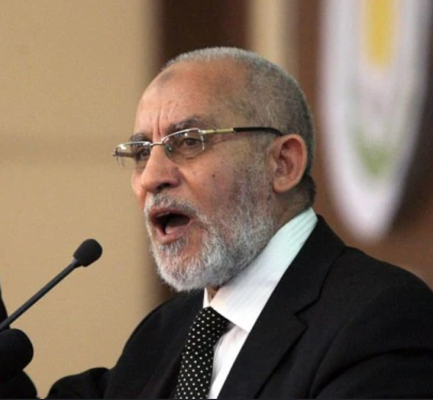Mohammed Badie is an Egyptian Islamist leader and the Supreme Guide of the Muslim Brotherhood, one of the oldest and most influential Islamist organizations in the Arab world. Badie, born on August 7, 1943, in the al-Mahalla al-Kubra district of Egypt, rose through the ranks of the Muslim Brotherhood over several decades to become its top leader. His tenure as the Supreme Guide has been marked by significant political turmoil, including the 2013 military coup that ousted the Brotherhood-backed President Mohamed Morsi, a turning point in Egypt's modern political history.
Early Life and Education
Mohammed Badie was born into a middle-class family in al-Mahalla al-Kubra, a city in northern Egypt. He went on to study veterinary medicine at the University of Cairo, where he earned his degree in 1965. His academic background was in the sciences, but his interests soon shifted to Islamic activism, particularly the ideas of Sayyid Qutb, the influential Egyptian thinker and ideologue of the Muslim Brotherhood. Qutb’s writings, which advocated for a comprehensive Islamic state and social justice based on Islamic principles, deeply influenced Badie’s worldview and his commitment to the Brotherhood's ideology.
Badie joined the Muslim Brotherhood at a young age, becoming an active member in the 1960s. His professional career as a veterinarian did not prevent him from engaging in activism, and over time, he became a key figure in the Brotherhood’s internal structures, known for his strong organizational skills and loyalty to the movement’s core principles.
Rise to Leadership within the Muslim Brotherhood
Throughout the 1970s and 1980s, Badie gradually rose within the ranks of the Muslim Brotherhood, an organization that had been banned in Egypt for much of its history but continued to operate in a clandestine manner. Badie played a significant role in shaping the Brotherhood’s activities, particularly in the organization’s focus on social welfare programs, charitable works, and community-building initiatives. He was also known for his commitment to the Brotherhood's core principles of non-violence and Islamic governance.
By the 1990s, Badie had become one of the most senior members of the group. He was involved in the Shura Council (the Brotherhood’s advisory board) and played a crucial role in shaping its policies. Badie’s leadership was marked by a strategy of non-confrontation with the Egyptian state, focusing on building the movement’s strength within society through education, healthcare, and social services. His work as a teacher and mentor to younger members of the movement helped solidify his standing within the organization.
Supreme Guide of the Muslim Brotherhood
In 2010, Mohammed Badie was elected Supreme Guide of the Muslim Brotherhood, the highest position within the organization. The role of Supreme Guide holds significant power in the Brotherhood, as it is responsible for guiding the group’s religious and political strategy. Badie succeeded Mahdi Akef, and his leadership came at a critical time in Egypt’s political landscape, as the country was on the brink of the 2011 Egyptian Revolution, which ultimately led to the fall of longtime dictator Hosni Mubarak.
Badie was a strong advocate for Islamic political participation and social justice in the post-Mubarak era. The Muslim Brotherhood, under his leadership, quickly adapted to the new political reality, fielding candidates in the 2011 parliamentary elections and playing a key role in the broader Islamist movement in Egypt.


